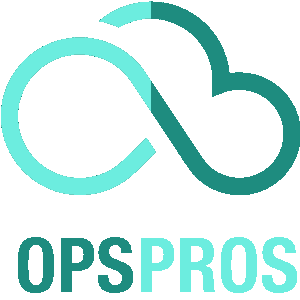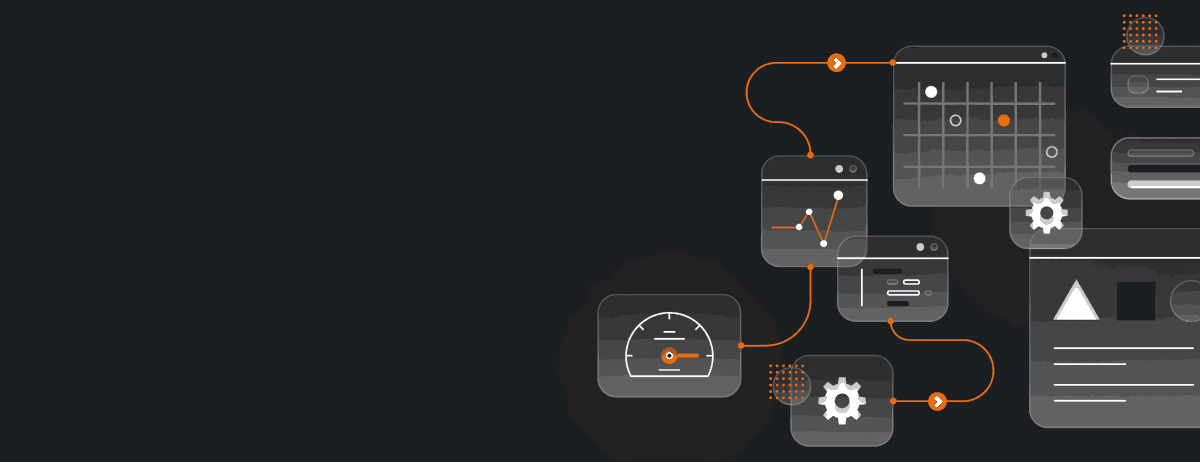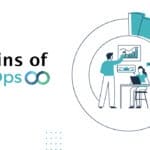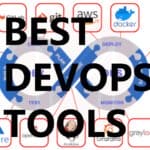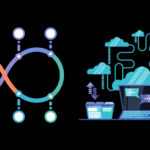Imagine a world where IT operations and software development integrate seamlessly, making efficiency and collaboration a reality in every organization.
This is the essence of the DevOps revolution, and the LPI DevOps Tools Engineer certification is the key to unlocking this extraordinary potential.
As you embark on this path, you will discover the secrets behind the seamless integration of development and operations.
You will learn how to navigate the complex landscape of DevOps tools, mastering the art of automation and collaboration.
This knowledge will empower you to become a true leader in the field who can break down barriers and drive technological progress.
A top-notch LPI DevOps Tools Engineer must master the essential skills and tools.
So, let’s dive right in!

What is LPI in DevOps?
A global certification standard for open source professionals is provided by the Linux Professional Institute (LPI).
What is an LPI DevOps engineer?
With the Linux Professional Institute DevOps Tools Engineer certification, you demonstrate that you are skilled with tools that increase IT process efficiency and enable product innovation.
You will have skills that are in high demand in every industry, whether you focus on system administration or software development.
Key Concepts
Version Control Systems (VCS)
Key Takeaway: VCS is your lifeline for managing code.
Version control systems are crucial for any DevOps engineer. They track changes in your code base, allowing you to switch between different versions, merge changes, and resolve conflicts. Git is the most popular VCS, but you should also be familiar with Subversion (SVN) and Mercurial.
Exemplify: Think of VCS as a time machine for your code. You can go back to any point and compare changes with ease.
Pro tip: Use descriptive commit messages! They make it easier to understand the history of your project.
Continuous Integration (CI)
Key Takeaway: CI ensures smooth code integration and reduces errors.
Continuous Integration frequently merges code changes through automated build and test pipelines. This approach reduces the risk of integration problems, increases code quality, and accelerates development.
Exemplify: Imagine having a personal robot 🤖 that automatically checks and merges your code, alerting you if something goes wrong. That’s CI!
Pro tip: Keep your CI pipeline lean and fast. Lengthy build times can become a bottleneck for your team.
Continuous Deployment (CD)
Key Takeaway: CD automates the deployment process for faster, safer releases.
Continuous Deployment automatically deploys new code to production after it passes all tests. It speeds up the release process and reduces human error.
Exemplify: Remember the times you messed up a manual deployment? The CD is like having an autopilot mode for shipping code. 🚢
Pro tip: Use feature flags to control the release of new features. This way, you can test them in production without impacting all users.
Essential Skills

Scripting and Automation
Key Takeaway: Automation saves time and reduces errors.
LPI DevOps Tools Engineers should be proficient in scripting and automation. You can automate repetitive tasks, reducing the chance of human error and saving time.
Exemplify: Imagine automating your server setup so you don’t need to spend hours configuring each new machine.
Pro tip: Familiarize yourself with scripting languages like Python, Ruby, or Bash and tools like Ansible and Puppet.
Cloud Computing
Key Takeaway: Cloud platforms are the foundation of modern DevOps.
Cloud computing is essential for LPI DevOps Tools Engineers. Platforms like AWS, Azure, and Google Cloud provide robust infrastructure and services that enable you to build, deploy, and scale applications efficiently.
Exemplify: Cloud platforms are like building blocks, providing you with the tools to create complex structures easily.
Pro tip: Invest time in learning popular cloud services, like AWS Lambda or Google Kubernetes Engine.
Monitoring and Logging
Key Takeaway: Monitoring helps you keep your systems healthy and secure.
Effective monitoring and logging are crucial for LPI DevOps Tools Engineers. They allow you to track application performance, detect anomalies, and troubleshoot issues.
Exemplify: Monitoring is like a health checkup for your systems, ensuring everything runs smoothly.
Pro tip: Learn about tools like Elasticsearch, Logstash, and Kibana (the EL K Stack) and monitoring solutions like Prometheus and Grafana.
Must-Have Tools

Containerization
Key Takeaway: Containers are the building blocks of modern applications.
Containerization, using tools like Docker and container orchestration platforms like Kubernetes, is essential for LPI DevOps Tools Engineers. Containers enable you to package and deploy applications consistently across different environments.
Exemplify: Containers are like shipping containers 📦 that can be loaded and unloaded anywhere, providing a standardized way to transport goods.
Pro tip: Understand the differences between containerization and virtualization. Virtualization uses virtual machines (VMs), while containerization uses more lightweight containers.
Infrastructure as Code (IaC)
Key Takeaway: IaC simplifies and streamlines infrastructure management.
You can define, provision, and manage infrastructure using code using IaC tools like Terraform and CloudFormation. IaC promotes consistency, repeatability, and version control, making it a vital skill for LPI DevOps Tools Engineers.
Exemplify: IaC is like having a blueprint for your infrastructure, enabling you to build and manage it precisely.
Pro tip: Choose an IaC tool for your needs and cloud platform. For example, AWS users prefer CloudFormation, while multi-cloud users may opt for Terraform.
CI/CD Pipeline Tools
Key Takeaway: Pipeline tools automate your code integration and deployment processes.
CI/CD pipeline tools like Jenkins, GitLab CI/CD, and CircleCI are indispensable for LPI DevOps Tools Engineers. These tools automate build, test, and deployment processes, making your workflow more efficient.
Exemplify: CI/CD pipeline tools are like a conveyor belt 🏭 that takes your code from development to production with minimal human intervention.
Pro tip: Find the CI/CD tool that works best for your team by trying different ones.
Advanced Concepts
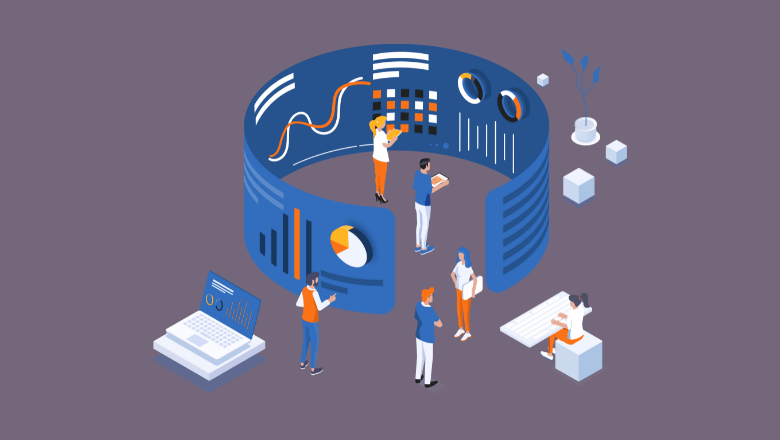
Chaos Engineering
Key Takeaway: Chaos Engineering helps you build resilient systems by anticipating failures.
Chaos Engineering is an advanced approach used by seasoned LPI DevOps Tools Engineers to improve system resiliency. It involves intentionally injecting failures into your systems to uncover weaknesses and validate your failover strategies.
Exemplify: Chaos Engineering is like a stress test for your systems, identifying weak points before they become real problems.
Pro tip: Start small and gradually increase the scale of your chaos experiments. Use tools like Gremlin or Chaos Monkey to help manage your tests.
Observability
Key Takeaway: Observability provides deep insights into your system’s behavior and performance.
For LPI DevOps Tools Engineers with extensive experience, observability goes beyond simple monitoring and logging. It involves collecting, analyzing, and correlating data from various sources to understand your system’s performance and troubleshoot complex issues.
Exemplify: Observability is like having X-ray vision 👓, allowing you to see the inner workings of your systems and make informed decisions.
Pro tip: Implement tools like Honeycomb or OpenTelemetry to enhance your observability capabilities.
GitOps
Key Takeaway: GitOps simplifies application and infrastructure deployment using Git.
GitOps is an advanced concept experienced LPI DevOps Tools Engineers use to streamline deployment processes. It involves using Git as the single source of truth for your infrastructure and application configuration, simplifying rollbacks, audits, and collaboration.
Exemplify: GitOps is like having a magic wand 🪄 that deploys your infrastructure and applications with a simple Git command.
Pro tip: Use tools like Flux or Argo CD to implement GitOps practices in your workflow.
Networking Concepts
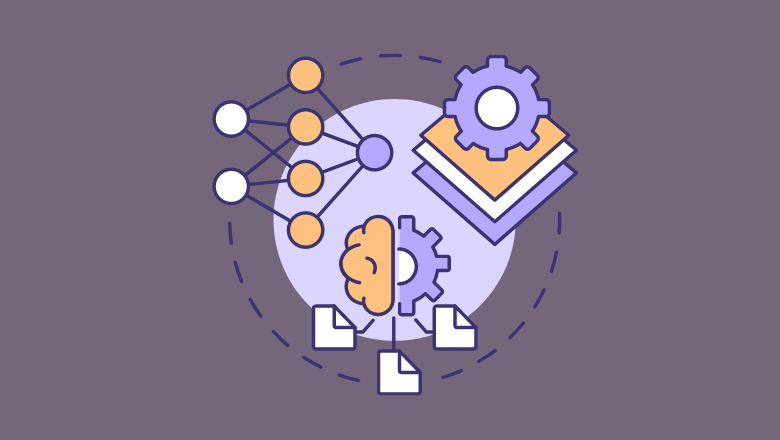
Software-Defined Networking (SDN)
Key Takeaway: SDN centralizes network management, improving flexibility and automation.
As an LPI DevOps Tools Engineer expert, understanding Software-Defined Networking is crucial. SDN decouples network control from hardware, centralizing management and enabling programmability, automation, and dynamic network configurations.
Exemplify: SDN is like having a traffic control center 🚦 that orchestrates your network traffic and adjusts configurations on-the-fly.
Pro tip: Explore open-source SDN solutions like OpenDaylight or ONOS to gain hands-on experience.
Service Mesh
Key Takeaway: Service mesh enhances microservices’ communication, security, and observability.
Service mesh is essential for expert LPI DevOps Tools Engineers working with microservices architectures. It provides a dedicated infrastructure layer for managing service-to-service communication, security, and observability.
Exemplify: Service mesh is like a conductor 🎼, orchestrating communication between microservices and ensuring harmony in your application.
Pro tip: Familiarize yourself with service mesh solutions like Istio, Linkerd, or Consul Connect.
Certification Exam: Linux Professional Institute DevOps Tools Engineer (701-100)
Key Takeaway: Earning the certification validates your DevOps practices and tools expertise.
The Linux Professional Institute (LPI) offers the DevOps Tools Engineer certification exam (Exam code: 701-100) to validate the essential skills of DevOps engineers in continuous delivery and application container management. This 90-minute exam tests practical skills and knowledge in various DevOps environments.
Exam Details
- Exam pricing: Check the LPI website for current pricing.
- Languages for exams: English, Japanese, and other languages may be available.
- Current Version: Refer to the LPI website for the latest exam version.
- Practice exams: LPI provides practice exams to help you prepare.
Exam Topics
The 701-100 Exam covers several areas, including:
- Software Engineering and Architecture: Understanding source code management, source utilities, and software development tasks in an enterprise environment.
- Container and Machine Deployment: Learn how to deploy modern software applications using Docker Swarm, application containers, and virtual machines.
- Configuration Management: Gaining proficiency in tools like Ansible, Puppet, and Chef to manage computing instances in a DevOps environment.
- Monitoring and Logging: Learning to monitor applications and extract valuable insights using tools like ELK Stack and Prometheus.
Preparing for the Exam
Pro tip:
- Leverage your knowledge of DevOps principles and practices to excel in the exam.
- Gain hands-on experience with the DevOps tools landscape and practice with hands-on labs.
- Consider additional certifications, such as LPIC-2 and LPIC-3, to enhance your expertise further.
- Career Benefits and Opportunities
Key Takeaway: Becoming an LPI DevOps Tools Engineer opens doors to new opportunities and career growth.
The DevOps movement has reached a maturity stage, with businesses across industries seeking qualified professionals to implement DevOps practices. Earning the Linux Professional Institute DevOps Tools Engineer Exam 701 certification demonstrates your expertise and sets you apart from other candidates.
Growth Prospects
As an LPI DevOps Tools Engineer, you’ll find opportunities in various sectors, such as:
- IT services and consulting
- E-commerce and online services
- Telecommunications
- Healthcare
- Financial services
Expanding Your Expertise
To further advance your career, consider pursuing additional certifications, such as:
- Developer certifications from major cloud providers (AWS, Azure, GCP)
- Kubernetes Administrator or Developer certifications
- Security certifications like CISSP or CEH
With the LPI DevOps Tools Engineer certification, you’ll be well-equipped to significantly impact your organization and industry, driving innovation and efficiency through DevOps practices. Keep learning and growing in your career! 🚀
Lesser-Known Tools for the LPI DevOps Tools Engineer
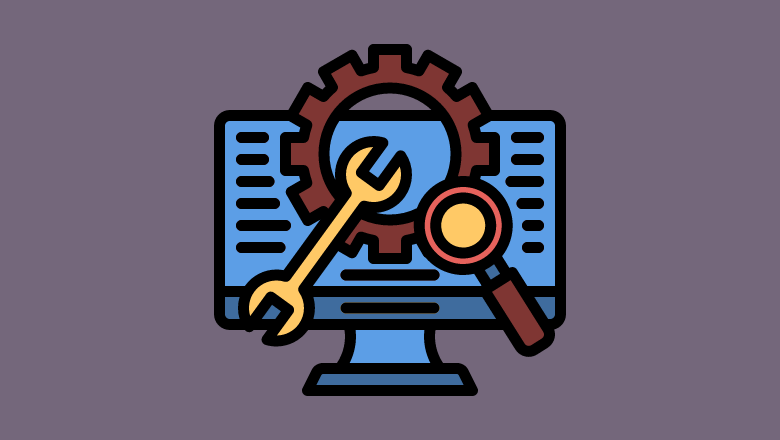
Key Takeaway: Utilizing lesser-known tools can give you a competitive edge in the industry.
As an LPI DevOps Tools Engineer, you’re already familiar with popular tools in the DevOps landscape. However, there are lesser-known tools that can help you stand out as a top-tier professional.
Let’s explore some of these hidden gems:
Packer
What it does: Packer creates identical machine images for multiple platforms from a single configuration.
Why it’s valuable: Packer enables you to maintain consistency across various environments by automating the creation of machine images and streamlining your deployment process.
Pro tip: Use Packer with your preferred Infrastructure as Code (IaC) tool for seamless infrastructure provisioning and management.
Spinnaker
What it does: Using Spinnaker, you can release software changes with high velocity and confidence on a multi-cloud continuous delivery platform.
Why it’s valuable: Spinnaker allows you to manage your continuous delivery pipelines, providing robust deployment strategies and support for multiple cloud platforms.
Pro tip: Integrate Spinnaker with your existing CI/CD tools to enhance your deployment capabilities and minimize downtime.
Tugboat
What it does: Tugboat is a tool for automatically creating preview environments for every pull request, allowing you to test and review changes before merging.
Why it’s valuable: Tugboat streamlines collaboration and accelerates the code review process, ensuring your team catches issues early and minimizes the risk of breaking changes.
Pro tip: Implement Tugboat in your development workflow to improve collaboration and efficiency during the review process.
Teleport
What it does: Teleport is a modern solution for managing secure access to your infrastructure, providing a unified access plane for developers and administrators.
Why it’s valuable: Teleport simplifies access management, enforces security best practices, and provides detailed audit logs, ensuring your infrastructure remains secure and compliant.
Pro tip: Use Teleport as a central access hub for all your infrastructure resources, including SSH servers, Kubernetes clusters, and databases.
By incorporating these lesser-known tools into your DevOps toolkit, you’ll enhance your skills and improve the efficiency and effectiveness of your organization’s processes. Embrace these hidden gems to stay ahead in the competitive world of DevOps! 🛠️
Best Practices
Collaboration and Communication
Key Takeaway: Effective communication is the backbone of successful DevOps.
Collaboration and communication are essential for LPI DevOps Tools Engineers. You must work closely with development, QA, and operations teams to ensure smooth and efficient processes.
Exemplify: Great communication is like a well-oiled machine, enabling all parts to work together seamlessly.
Pro tip: Use tools like Slack, Microsoft Teams, or Trello to facilitate communication and collaboration within your team.
Security and Compliance
Key Takeaway: Security should be integrated throughout the DevOps lifecycle.
LPI DevOps Tools Engineers should prioritize security and compliance. You must ensure that your systems are protected and compliant with industry standards.
Exemplify: Security is like a fortress 🏰, guarding your applications and data against potential threats.
Pro tip: Implement security best practices like the principle of least privilege, regular patching, and vulnerability scanning.
Continuous Improvement
Key Takeaway: Keep learning and adapting to stay ahead in DevOps.
Continuous improvement is vital for LPI DevOps Tools Engineers. As technology evolves, you must stay up-to-date with new tools, practices, and trends to remain competitive.
Exemplify: Continuous improvement is like a journey 🌍, where you never stop exploring and learning new things.
Pro tip: Attend conferences, webinars, and workshops, and engage with the DevOps community to stay current with industry advancements.
Wrapping up
Becoming an LPI DevOps Tools Engineer requires mastering many skills and tools, embracing best practices, and fostering a culture of collaboration and continuous improvement.
James is an esteemed technical author specializing in Operations, DevOps, and computer security. With a master’s degree in Computer Science from CalTech, he possesses a solid educational foundation that fuels his extensive knowledge and expertise. Residing in Austin, Texas, James thrives in the vibrant tech community, utilizing his cozy home office to craft informative and insightful content. His passion for travel takes him to Mexico, a favorite destination where he finds inspiration amidst captivating beauty and rich culture. Accompanying James on his adventures is his faithful companion, Guber, who brings joy and a welcome break from the writing process on long walks.
With a keen eye for detail and a commitment to staying at the forefront of industry trends, James continually expands his knowledge in Operations, DevOps, and security. Through his comprehensive technical publications, he empowers professionals with practical guidance and strategies, equipping them to navigate the complex world of software development and security. James’s academic background, passion for travel, and loyal companionship make him a trusted authority, inspiring confidence in the ever-evolving realm of technology.
